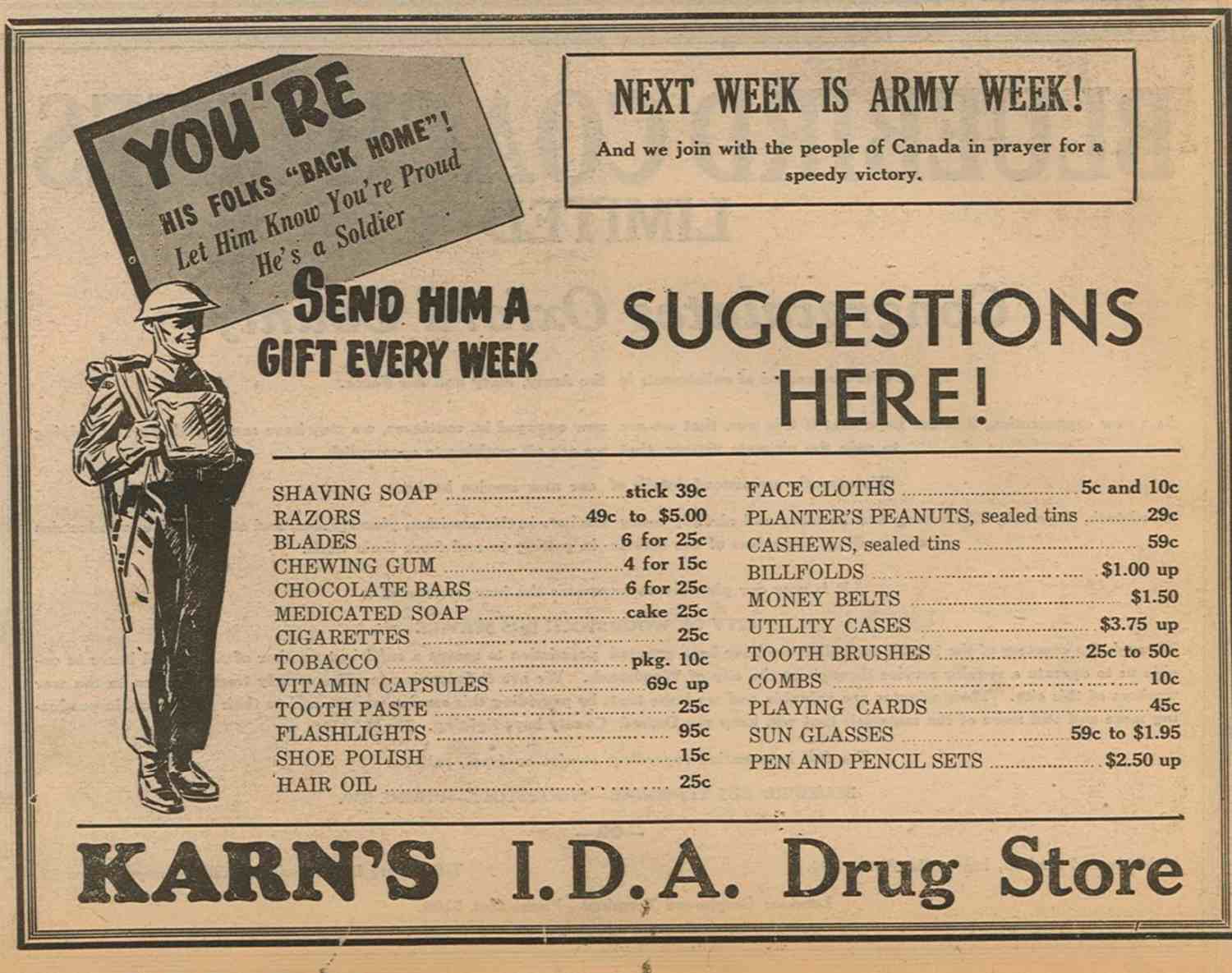Wartime Christmas
Wartime Christmas
The holiday season and Christmas celebrations during the Second World War looked a little different than what we are used to today.
By Megan Lockhart, Archives Technician
Christmas is a time of year that is filled with spending time with family, exchanging gifts, indulging in seasonal holiday food and treats, attending holiday parties, and decorating your house with garland, lights, Christmas ornaments, and of course putting up a Christmas tree. The holiday season may look a little different this year because of the impact of Covid-19. However, this is not the first time in history that people have had to alter their Christmas celebrations.
During the Second World War, for many people, Christmas celebrations were different from what we expect today. Due to the war, many people who celebrate Christmas had to sacrifice or adapt some of their cherished holiday traditions to suit the times. Let’s first set the scene of Christmastime during the Second World War (1939-1945). Many families were not able to celebrate together. Husbands, brothers, sons, and friends were overseas fighting in the war, and some daughters, sisters, mothers, and wives were also overseas serving as nurses or in other roles for the war effort. In Canada people were on rations, as food had to be reserved to be sent overseas to feed soldiers. This meant that food resources such as butter, sugar, meat, dairy and eggs were scarce. Families were asked to make do without some of the luxuries they were used to in their daily lives. Other things like gasoline, rubber, tin foil, shoes, clothing, cigarettes, and matches were also in short supply. Despite these circumstances, many families still found ways to celebrate Christmas.
Due to rationing, Christmas dinners likely looked quite different during the war years. Many families could not have the traditional Christmas turkey. Families had to hoard rations for weeks in advance in order to make an ideal Christmas dinner. Some rations like sugar were increased for Christmas. Instead of the traditional turkey, people would have pork or a home-raised chicken or rabbit. Home-grown vegetables would also have been used. Dried fruit was difficult to find for desserts like Christmas pudding or cake, so instead ingredients like breadcrumbs and shredded carrot were used in the desserts. As the war years progressed, mock-meat alternatives replaced having real meat for Christmas dinner. The egg-less milk-less war cake became a popular dessert during the war years. People often gathered together at a neighbour’s, friend’s, or family member’s house and combined their rations in order to have a more substantial Christmas dinner.

Gift-giving during the Second World War was also less extravagant than in previous years. Gifts like oranges, a luxury for many families at the time, may have been exchanged or practical gifts like tools, vegetable seeds and books. Children may have been treated to a wooden toy or two but gifts like toys or silk handkerchiefs and stockings often had to be purchased second hand or bought illegally at a black-market shop. Soap was the number one Christmas gift in the UK and North America in the early 1940s. Presents were also sent to soldiers overseas. Just like on the Homefront, practical gifts and necessities were preferred presents. Soldiers were often in dire need of soap, socks, shaving razors, combs, toothpaste, and coffee. Sending chocolate to a soldier was an extra special gift. Letters, postcards and greeting cards were sent and received by soldiers as well. Many soldiers would send home postcards for Christmas from wherever they were stationed or had visited.
There was no Christmas Truce during the Second World War as there was during the first. Some soldiers did manage to band together and have their own version of a Christmas dinner or celebration regardless. Prisoners of War who were held in camps were sometimes allowed to form entertainment troupes and would perform shows and songs for other POWs in the camps at Christmas time. Despite the dire circumstances for both soldiers and their families and friends left at home during the war, people still found a way to celebrate the holiday, showing great determination and ingenuity. So while your Christmas celebrations may seem a little lackluster this year due to this global pandemic we are all fighting through, just remember that people have been faced with less than jolly circumstances at Christmas before. With a little optimism, humanity has always found a way to spread some joy as I’m sure many of us will this year as well. Have a safe and happy Christmas and holiday season.
